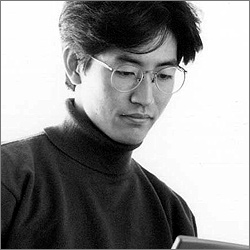Opening Plenary

Dr. Jun Rekimoto, Sony Computer Science Laboratories, Inc., Japan
Next Reality: the Future of Connected Everyday
As the wave of ubiquitous computing rapidly penetrates into our everyday lives, the focus of human computer interactions is also shifting from simply improving individual "boxes" to enhancing more connected activities and communications. In this talk Dr. Rekimoto will discuss how such pervasive connectivity will change our physical space, and what the user interface challenges will be, presenting a new way of thinking about human interfaces and applications especially in a ubiquitous computing domain.
Jun Rekimoto received the B.A.Sc., the M.Sc. and the Ph.D. in Information Science from Tokyo Institute of Technology in 1984, 1986, and 1996, respectively. From 1986 to 1994, he worked for the Software Laboratory of NEC. During 1992-1993, he worked in the Computer Graphics Laboratory at the University of Alberta, Canada, as a visiting scientist. Since 1994 he has worked for Sony Computer Science Laboratories. In 1999 he formed, and has since directed, the Interaction Laboratory within Sony CSL.
At Sony CSL, Dr. Rekimoto initiated and led the "Real-World User Interfaces" project since 1994. This project produced several research accomplishments, including NaviCam (a situationally-aware mobile assistant), Pick-and-Drop (a direct-manipulation technique for inter-appliance computing), Multiple-Device Digital Whiteboard, Augmented Surfaces, and TimeScape (time-machine user interface environment). Some of these results are being commercialized in Sony's personal computer series called "VAIO".
Dr. Rekimoto's research interest includes computer augmented environments, mobile/wearable computing, virtual reality, and information visualization. He has authored dozens of refereed publications in the area of human-computer interactions, including ACM CHI and UIST. One of his works was recognized with the 30th commemorative papers award from the Information Processing Society Japan (IPSJ) in 1992. He also received the Multi Media Grand Prix Technology Award from the Multi-media Contents Association Japan in 1998, and Yamashita Memorial Research Award from IPSJ in 1999.